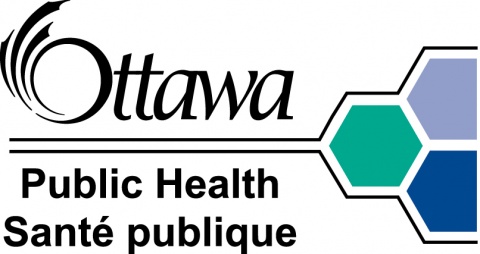
Ottawa Public Health on ticks and mosquitos
You are here
The community, in fact the entire world, is focused on preventing COVID-19 infections. This has been a tremendous effort by the community to ‘flatten the curve’. As the season progresses, we do need to keep in mind there are other infections spread by black-legged ticks and mosquitos to be mindful of and ensure we protect ourselves and family members. It is worth noting that the US Centers for Disease Control and Prevention has no data to suggest that this new coronavirus or other similar coronaviruses are spread by mosquitoes or ticks. The main way that COVID-19 spreads is from person to person.
While most mosquitoes are just a nuisance, others can pose a health risk as carriers of West Nile virus. Using an insect repellant containing DEET or icaridin, wearing tightlywoven but loose-fitting, light-coloured clothing, long pants and long sleeves, keeping screens in good repair and removing standing water around the home will help you protect yourself and prevent bites. Mosquitoes breed in standing water so eliminate pooled water in the bottom of tire swings, and drill holes in recycling bins and unused planters. These mosquitos like to live in proximity to human habitat so even on your own property outside in your garden or on a porch remember to protect yourself. Take extra care to use repellent and protective clothing from dusk to dawn or consider avoiding outdoor activities during these times.
If you live adjacent to outdoor areas suitable for ticks, for example, wooded areas or areas with tall grasses, or you visit these areas once permissible from COVID-19 restrictions, you need to be aware of the risk of Lyme disease. As you may have heard through media reports, populations of blacklegged ticks that carry Lyme disease are growing and expanding into new areas. This means that the risk of contracting Lyme disease is on the rise across Canada.
Ottawa is considered an at-risk location for ticks that may carry Lyme disease. Tall grasses, bushy, wooded and forested areas are habitats favoured by ticks. The blacklegged tick that is known to carry the bacterium causing Lyme disease is present in the Ottawa area, across Eastern Ontario, and the Outaouais region of Quebec. OPH is monitoring this issue and providing information to residents and physicians to help prevent and reduce Lyme disease-related health risks in our community. OPH has seen an increase in the number of cases of Lyme disease reported in the Ottawa area over time, as well as an increase in the number of cases of Lyme disease likely acquired in the Ottawa area.
Do your best to stay on cleared paths, but if your trek brings you into long grass or forests, apply insect repellant and tuck your pants into your socks (don’t worry - it can be very fashionable these days). Most importantly, perform a “full body” check on yourself, your children and your pets for ticks. Pay careful attention around toes, knees, groin, armpits and scalp. If you do find a tick on your skin, carefully remove it following. instructions available at ottawapublichealth.ca/lyme.
Situations when you should immediately contact your family physician include: flu-like symptoms following a mosquito or tick bite; a bull’s eye type rash after a tick bite; and when a tick has been attached for 24 hours or more, a tick looks partially or fully engorged, or if you are unsure the length of time the tick has been attached. While there are no antiviral treatments available for COVID-19 or WNV, fortunately Lyme disease is treatable with antibiotics; however, prevention is the best approach with these, as with all, infectious diseases. For more info on West Nile virus and Lyme disease, visit ottawapublichealth.ca/westnilevirus or ottawapublichealth.ca/lyme.
- Log in to post comments

